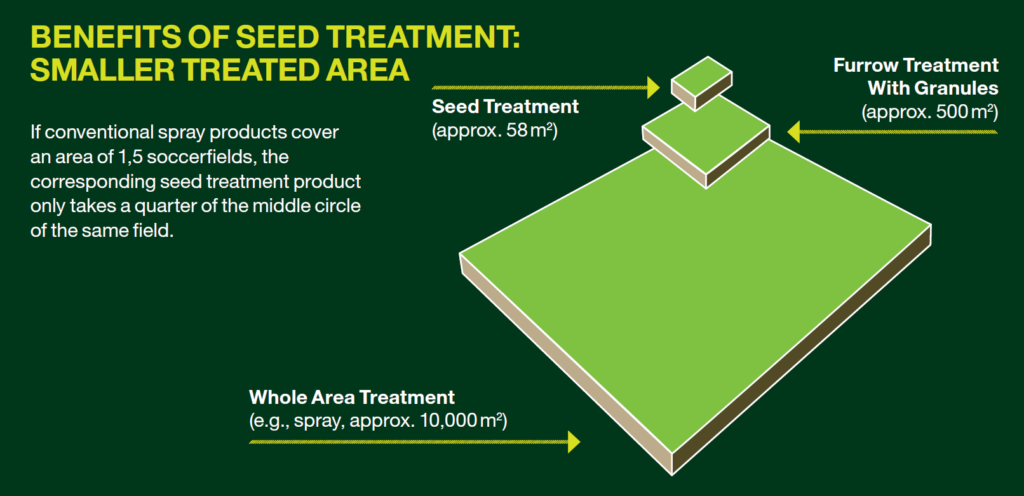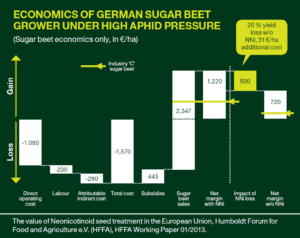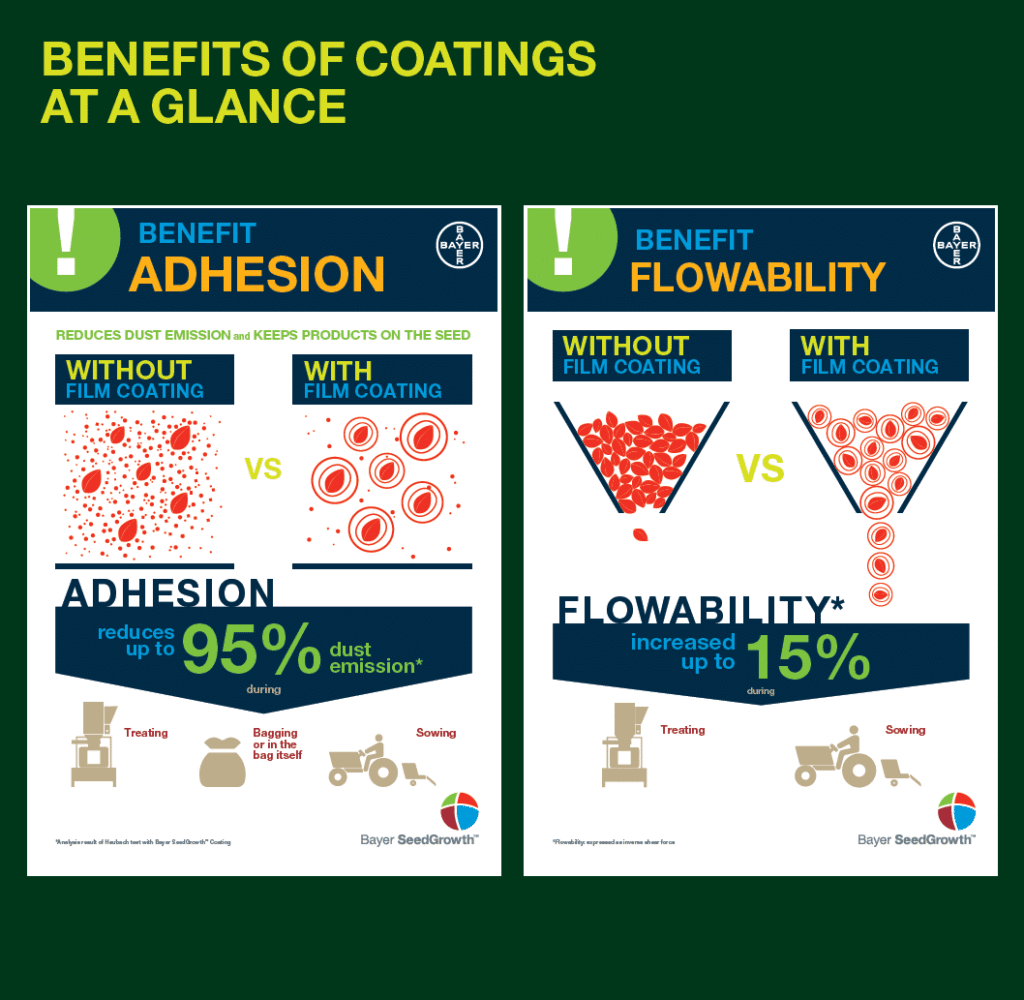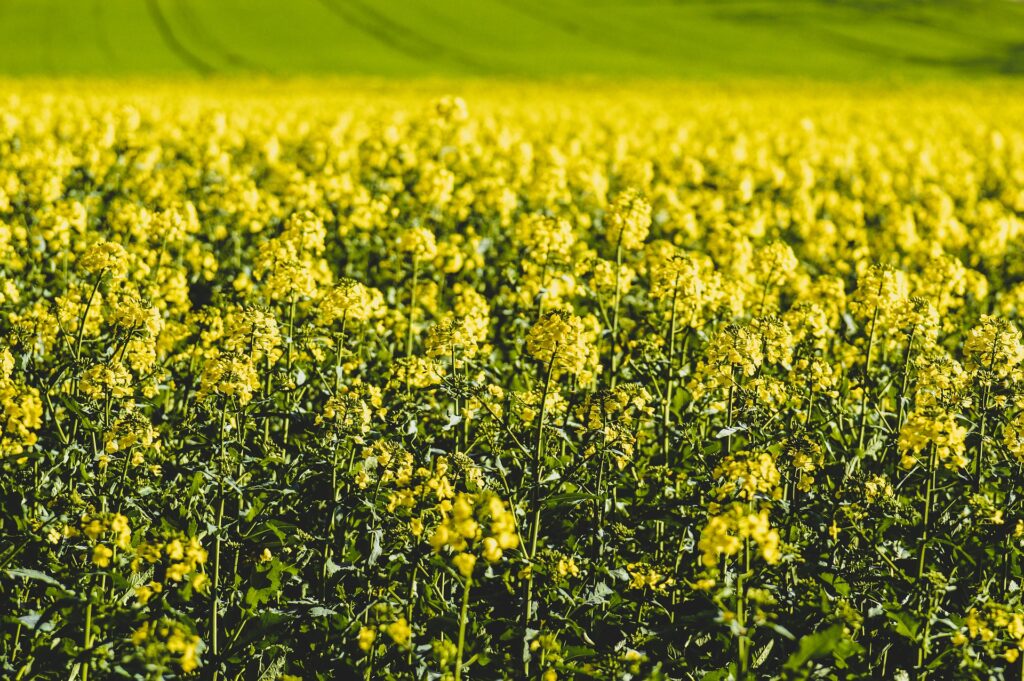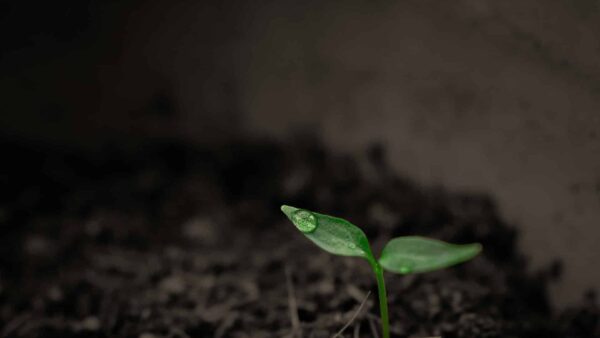Studies in the EU and North America clearly document the multiple benefits of seed-applied technologies. The alternatives are economically and ecologically inferior. Whereas the scientific facts and sustainability benefits are clear, emotions have often beaten science in the debate on seed-applied technologies, and especially neonicotinoids (NNi). Nevertheless, Bayer CropScience is making every effort to promote a scientific discourse on the advantages of seed-applied technologies – for the benefit of farmers, seed treaters, food companies, and consumers.
Today’s sophisticated seed-applied products offer farmers multiple benefits, including protection of high-value seed right from the start, flexibility in application, prevention of plant damage or loss, increased plant health and vigor, and fewer environmental and stewardship worries. Seed-applied products dramatically reduce the area typically exposed to a crop protection product from 10,000 m2 for spray to 58 m2 for seed treatment in case of corn. Off-farm application before seeding saves farmers time in a busy period of the year, whereas alternative sprays add complexity and cost to the business of controlling pests and diseases.
Proven in practice
The COMPASS study carried out by the Humboldt Forum for Food and Agriculture in 2013 demonstrated the economic benefits of seed-applied NNi in the EU. If they were no longer available, the financial loss to the EU economy would be as high as € 4.5 billion, with 50,000 jobs put at risk. Without systemic protection by NNi, sugar beet losses of 10–20 % could become more frequent in the midterm through losses due to pests (e.g., green peach aphids) or yellowing disease. The benefits of NNi include yield improvements of up to 20 % in winter wheat, sunflowers, and oilseed rape, and higher growers’ margins ranging from +39 €/ha in oilseed to +71 €/ha in winter wheat.
Increased concerns
An independent large-scale study conducted by the U.S. agricultural consulting firm Aginformatics analyzed the benefits and implications if NNi were no longer available in North America. The conclusions were unequivocal. The loss of NNi would force growers to rely on older, less beneficial chemistry, result in reduced crop yield and quality, disrupt beneficials and integrated pest management (IPM) practices, and increase concerns about worker safety. Without NNi, the impact on IPM in commodity crops would be a 185 % increase in treated acreage due to the need for a higher frequency of foliar sprays, 4 million lbs. of NNi replaced by 19 million lbs. of older insecticides, and a cost hike of $ 848 million.
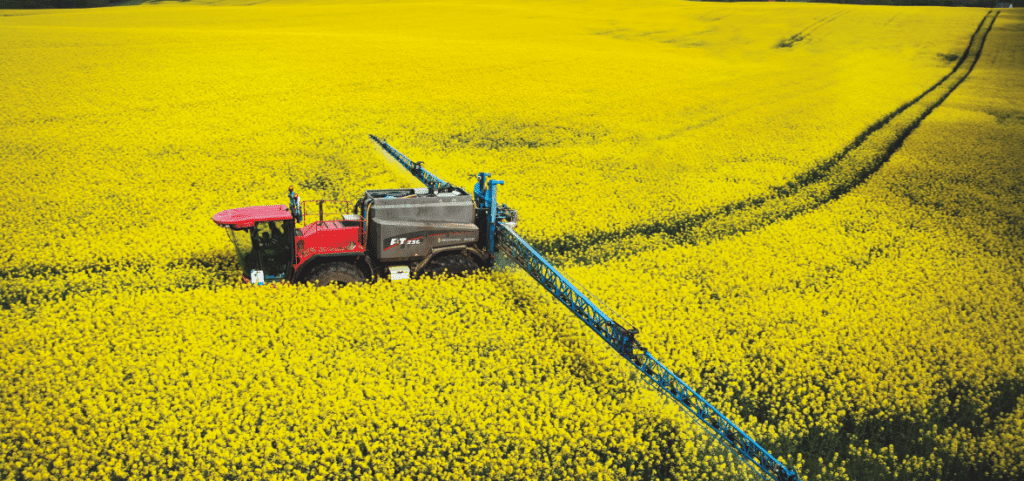
Cumbersome alternatives to NNi
After the EU restricted the use of three NNi insecticides in December 2013, farmers in the UK reported losses of 20–50 % in their next-season oilseed rape crops caused by cabbage stem flea beetles. As a result, the relevant UK department (DEFRA) gave farmers temporary permission to spray a different neonicotinoid on oilseed rape crops. On March 19, 2015, John Haynes, an arable farm manager in eastern England, was quoted in The Guardian on the impact of the NNi ban: “This is the first season we didn’t use the pesticide and the flea beetle larvae are all over the oilseed rape. It costs me an additional L 25,000 to apply six different insecticides … (and) the beetle and aphids are already resistant to these pyrethroids. It’s old chemistry that kills all other beneficiaries in the soil, rather than the systemic neonics that target just the beetles.”
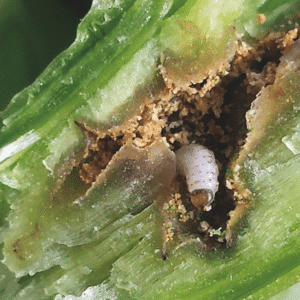
The situation in Mecklenburg-West Pomerania, Germany’s oilseed rape stronghold is no better. Here, farmer Hans Behn (quoted on www.agrarheute.com on January 19, 2015) spoke of huge losses due to cabbage stem flea beetles, crops written off, and additional costs of 400 €/ha.
In Germany as a whole, oilseed rape acreage is expected to decline by 10 % in 2015. As much less pollen-rich oilseed rape has been planted across northern Europe, bees have lost one of their most important sources of early-season forage.
Stewardship implemented
The potential risks of seed-applied products have already been further reduced through improvements in abrasion-reducing coatings, application, and handling, through quality assurance measures (e.g., ESTA certification) and modifications to machinery (e.g., deflectors), and through the use of better fluency agents at seeding. It is an indisputable fact that seed-applied technologies are a key tool in sustainable agriculture, help combat pest pressure and resistance, and bring benefits to farmers, the environment, and the whole food chain by ensuring a more profitable, stable, and reliable supply of crops. But it remains to be seen if objective science will prevail over unqualified emotion.
Visit www.seedgrowth.bayer.com and learn more about Bayer SeedGrowth and the multiple benefits of seed-applied technologies.



